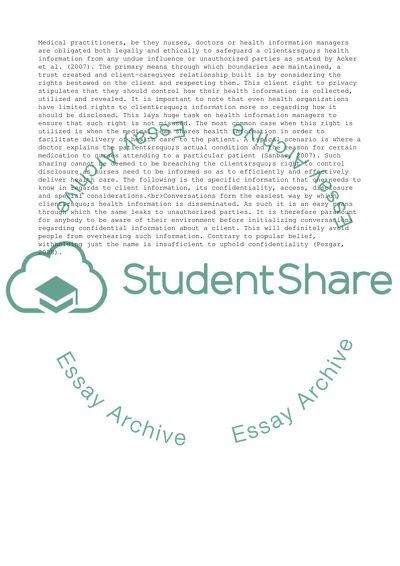Cite this document
(“Privacy and Confidentiality of Client Health Information Research Paper - 1”, n.d.)
Privacy and Confidentiality of Client Health Information Research Paper - 1. Retrieved from https://studentshare.org/management/1576715-case-study
Privacy and Confidentiality of Client Health Information Research Paper - 1. Retrieved from https://studentshare.org/management/1576715-case-study
(Privacy and Confidentiality of Client Health Information Research Paper - 1)
Privacy and Confidentiality of Client Health Information Research Paper - 1. https://studentshare.org/management/1576715-case-study.
Privacy and Confidentiality of Client Health Information Research Paper - 1. https://studentshare.org/management/1576715-case-study.
“Privacy and Confidentiality of Client Health Information Research Paper - 1”, n.d. https://studentshare.org/management/1576715-case-study.


